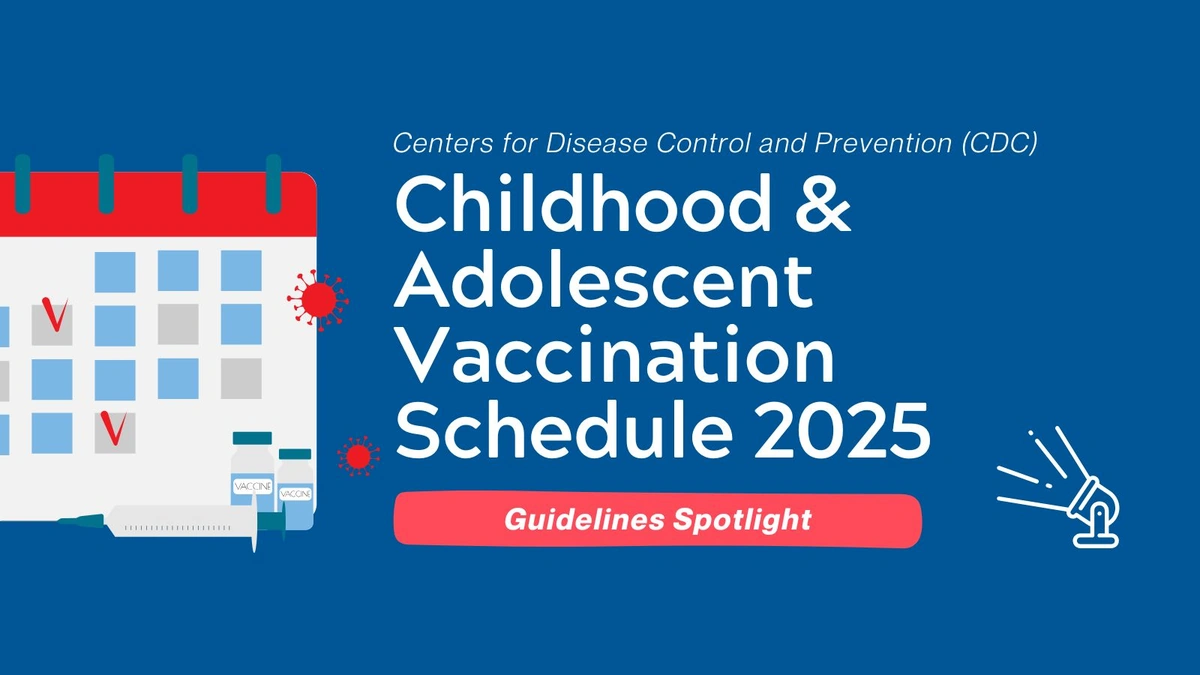Alright, let’s talk childhood vaccine schedules . You’ve probably seen the charts – a dizzying array of shots, boosters, and abbreviations. The CDC (Centers for Disease Control and Prevention) has a committee constantly reviewing these schedules, and when they meet, it’s kind of a big deal. But why should you, an Indian parent, care? Let’s dig into the “why” behind these recommendations and what it all means for your little one.
Why the CDC’s Vaccine Schedule Matters in India

Here’s the thing: While the CDC is a US-based organization, their recommendations often influence global health guidelines. Think of it like this – they’re a research powerhouse, and their findings trickle down. Vaccine manufacturers, global health organizations like the WHO (World Health Organization), and even our own Indian Academy of Pediatrics (IAP) consider the CDC’s advice. So, when the CDC committee discusses changes to recommended immunization schedules , it can eventually impact the vaccines available and recommended here in India. More information can be found here
But, before you start panicking about needing to book extra appointments, let’s be clear: The IAP already has a comprehensive vaccination schedule in India , tailored to our specific context. Factors like disease prevalence, vaccine availability, and cost-effectiveness are all considered. However, understanding the reasoning behind the CDC’s decisions can give you a broader perspective on vaccine science.
Understanding the Underlying Logic
Let’s be honest, the sheer number of vaccines can be overwhelming. What fascinates me is the science behind it all. It’s not just about giving shots randomly. There’s a delicate balance at play. The timing of vaccines is crucial because a child’s immune system matures over time. Some vaccines need to be given early to protect vulnerable newborns (like the BCG vaccine for tuberculosis), while others are more effective later in life when the immune system is more developed.
And here’s something else: the rise of combination vaccines, which give multiple protections in a single shot, is revolutionizing childhood vaccination. But, the development is still ongoing for diseases such as pneumococcal disease. According to the CDC website , this type of disease can be prevented by vaccines. These combination vaccines reduce the number of injections and hence are more convenient and promote better compliance from the parents, not just in India, but globally.
Navigating Potential Changes and Concerns
So, what happens when the CDC proposes a change? It’s not a knee-jerk reaction. The committee reviews the latest research, assesses safety data, and considers real-world effectiveness. They also look at factors like disease outbreaks and emerging variants. Let me rephrase that for clarity: they’re trying to stay ahead of the curve, ensuring kids get the best possible protection.
Of course, vaccine discussions are never without controversy. You’ll find opinions on social media. A common mistake I see people make is to blindly follow information without checking sources. Always consult with your pediatrician. They are the best resource for personalized advice tailored to your child’s health history and risk factors. They’ll guide you to make an informed decision about immunization schedule in India .
Moreover, It is important to verify that your childhood immunization schedule has vaccines that help avoid serious diseases.
The Role of Herd Immunity
Now, let’s address something crucial: herd immunity. It’s the concept that when a large percentage of a community is immune to a disease (through vaccination or prior infection), it protects those who are not immune, such as infants too young to be vaccinated or individuals with compromised immune systems. When it comes to herd immunity in India , high vaccination rates are critical to safeguard vulnerable populations.
What fascinates me is the collaborative nature of this protection. Vaccination isn’t just about individual health; it’s about community well-being. When parents choose to vaccinate their children, they’re not only protecting their own family, they’re contributing to a shield that benefits everyone.
The government of India promotes public awareness through mass media in order to improve vaccine preventable diseases among children and adults.
Staying Informed and Making Informed Choices
Ultimately, the decision of whether or not to vaccinate your child is a personal one. But, it should be based on facts, not fear. Stay informed about the latest recommendations, ask questions, and trust your doctor. They can help you understand the risks and benefits of each vaccine, and create a schedule that works best for your family.
And remember – the CDC committee’s discussions are just one piece of the puzzle. The IAP’s recommendations for India are based on our specific context. The one thing you absolutely must double-check is to consult with your pediatrician about your infant immunization schedule .
So, while the CDC’s deliberations on childhood vaccination programmes might seem distant, they reflect an ongoing global effort to refine and improve vaccine strategies. And in the long run, that’s something that benefits all of us, even here in India. Read more
FAQ About Childhood Vaccine Schedules
What if I miss a vaccine dose?
Don’t panic! Talk to your pediatrician. They can help you catch up on missed doses.
Are vaccines really safe?
Vaccines undergo rigorous testing before they are approved. Serious side effects are very rare.
What about alternative vaccine schedules?
The CDC and IAP recommend sticking to the established schedules for optimal protection.
How can I find reliable information about vaccines?
Consult your pediatrician, the IAP website, or reputable health organizations.
Are there any vaccines needed prior to international travel?
Yes. Please discuss with your doctor four to six weeks before your trip.




